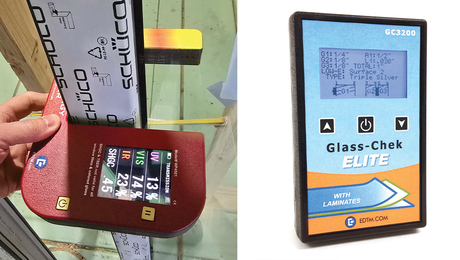*
Has anyone used the new carbide toothed cut-off saws for conduit? I have a lot of conduit to cut. Abrasive wheels and pipe cutters leave too much of a burr and make it dangerous to pull wire. Hack saw takes too long. Jig saw with metal cutting blade + deburring has been my method so far. I don’t have a band saw.
The carbide tipped dry cut saws (ala Dewalt, Porter Cable. and Makita) look like a good option. They all claim to make neat, cool, burr free cuts. Has anyone used them for conduit?
On a related issue – some web reviews (on amazon) indicate that these saws are good for ferous metals only. The manufacturers don’t indicate that. Has anyone used a dry cut saw on copper pipe?



















Replies
*
Chris what type of conduit? emt, rigid? if your cutting rigid and it's alot like you say rent a threading tool, they have a deburring attachment right on them. if its emt then I can't offer any help because I just use a hand reamer, after doing enough of the stuff a swipe with one of those becomes second nature and doesn't slow you don't at all. I debur while I'm walking over to fit it in.
*It's EMT. I use a hand reamer after every cut. But, the rough edges left by a pipe cutter or an abrasive cutter are too much for the reamer. Those burrs need filing - which takes forever. Hack saw or jig saw leaves a slight rough edge which deburrs easily, but hacksawing takes too long. Jig sawing works well for now, but doesn't seem like a good solution for a lot of EMT. The blades don't last all that long, and you have to be carefull to avoid pinching the blade when the cut is near completion. It's just a little too sketchy for my liking.Steve - what method do you use to cut your EMT?
*From Steve's background I would say he has probably run more EMT than I have, and I have probably ran a mile or two of the stuff. What size and how much is a lot?Once we go over 1" we may break out the bandsaw, but anything under that or less than 200 lf is a waste of time. Hacksaw, hand reamer, folding rule, pencil, two pair of channel locks, a cordless hammer drill, and a bender are about the necessities for most conduite jobs.Whats a dry chop saw cost? A portaband is a little over $300 and a lot more versital.
*First off I will admit I am not an electrician nor do I play one on TV. When I am not beating nails into lumber I usually fill in with a couple of electrical contractors I know. On the commercial jobs that require a fair amount of conduit we use those small 9.6v reciprocating saws with a metal cutting blade. They work well up to the 1" stuff. Still must hand ream but there is not a lot of back and forth to the cutoff saw and I can manage to install a fair amount of emt using that method.
*The commercial job I'm on now, I see the electricians using the portaband saw. Looks pretty convenient to me. They cut a whole bundle of 1/2 and 3/4 at a time for their stub ups in the walls or anything else. I see them use their sidecutters to ream the ends out.
*Electricians on my job are using battery powered saws with the carbide blades specifically designed to cut conduit. Quicker (and lighter than a portaband).
*
Has anyone used the new carbide toothed cut-off saws for conduit? I have a lot of conduit to cut. Abrasive wheels and pipe cutters leave too much of a burr and make it dangerous to pull wire. Hack saw takes too long. Jig saw with metal cutting blade + deburring has been my method so far. I don't have a band saw.
The carbide tipped dry cut saws (ala Dewalt, Porter Cable. and Makita) look like a good option. They all claim to make neat, cool, burr free cuts. Has anyone used them for conduit?
On a related issue - some web reviews (on amazon) indicate that these saws are good for ferous metals only. The manufacturers don't indicate that. Has anyone used a dry cut saw on copper pipe?